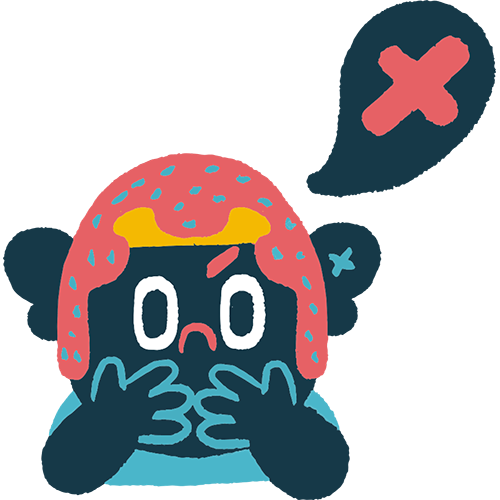Hunting False Friends
Did it ever occur to you, that you heard a word in another language, which you didn't know before, but because it is similar to words in your language(s), you thought you knew its meaning?
These tricky words are called "False Friends", let's hunt them!
Warm up
“My first language is Italian. I went to Spain with my class. There, we were supposed to order breakfast and tell the waiter what we would like to eat.
I wanted bread (pane) with (con) butter (burro) and (e) jam (marmellata). So, I tried to transform Italian into Spanish and I said: ‘Pan con burro y marmelada, por favor!’
The waiter looked at me in shock..."


Learn
There are words in different languages which are identical or very similar, like "pizza", the colour "blue" or "Internet", and mostly the meaning is the same… though not always, and that can be a problem! Or better, a challenge!
Here is an example
In Italian, when you are asked to develop a "concetto" you are asked to develop first ideas about a topic. Whereas in German, when you are asked to develop a "Konzept", you are asked to write down much more than first ideas! A "Konzept" is a text of a few pages, with the description of goals, strategies, deadlines, etc.
Dive in 1
Imagine you have just moved from Italy to Germany and the teacher asks you to elaborate a "Konzept" on a topic and you get back with a couple of first ideas! Or that you have just moved from Germany to Italy and you are asked for a "concetto". Instead of just sharing first ideas to your teacher, you present a whole well-defined project in which you put much effort without giving your teacher the chance to give you feedback.
Exchange with your buddy on following questions:
- Considering first one scenario and afterwards the second one, how might the teacher in Germany/Italy interpret the unexpected deliverable and feel about it?
- Why do you think different languages have similarities? (Similar words, expressions, grammatical structures… sometimes even identical!)
- When you are done, how do you explain that sometimes identical or very similar words (e.g. “Konzept” - “concetto”) have developed different meanings?

Dive in 2
In Germany the name of a popular toothpaste is “Putzi”.
Even if you don't know any of these languages, try to guess: why is it a good name for the German market but not for the Italian one?
When you have developed some possible reasons, click here.

Create
Together, find false friends among the languages you know.
If none comes to your mind, you can ask peers or other people you know or look them up on the Internet.
After laughing, as there are really very funny ones, choose some and invent a sketch in which one or more false friends are used.
How can you implement that? Choose a format: comics, audio-file, video animation, theatre piece… and just do it!
- Did your characters understand that they were misunderstanding each other?
- Write down at least 1 hint: how can people understand that they are misunderstanding each other?
- Did they solve their misunderstandings or how could they have done it?
- Write down at least 1 strategy: how can people clarify a misunderstanding?

Reflect
What we say is sometimes different from what the other person understands, no matter the language(s) involved!
How can awareness about hidden misunderstandings be useful for your everyday life?
Share your ideas with your buddy and create a postcard with your ideas, or if you prefer: with your favourite false friends!
Ask your educator to login and share your postcard with the KIDS4ALLL community.


